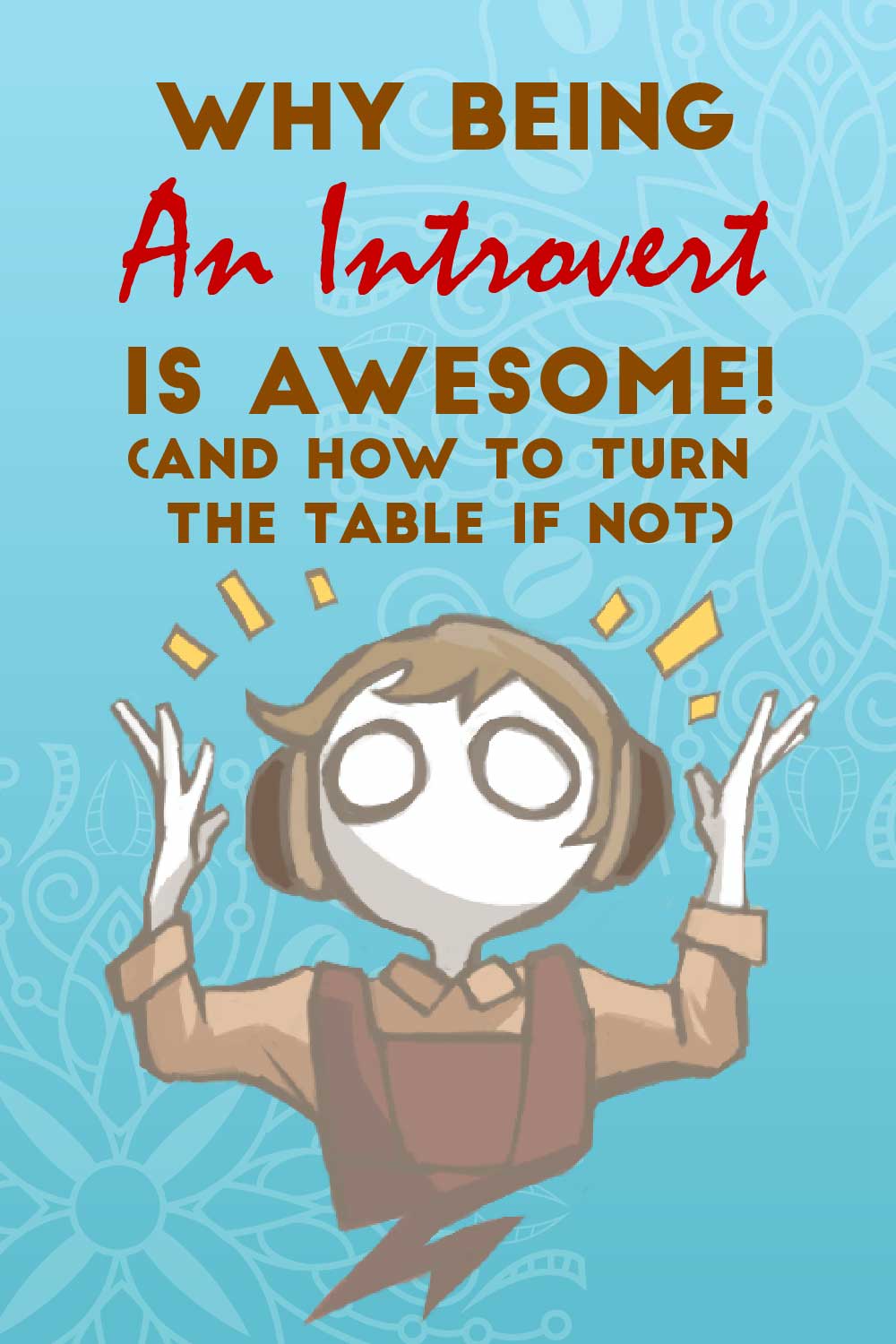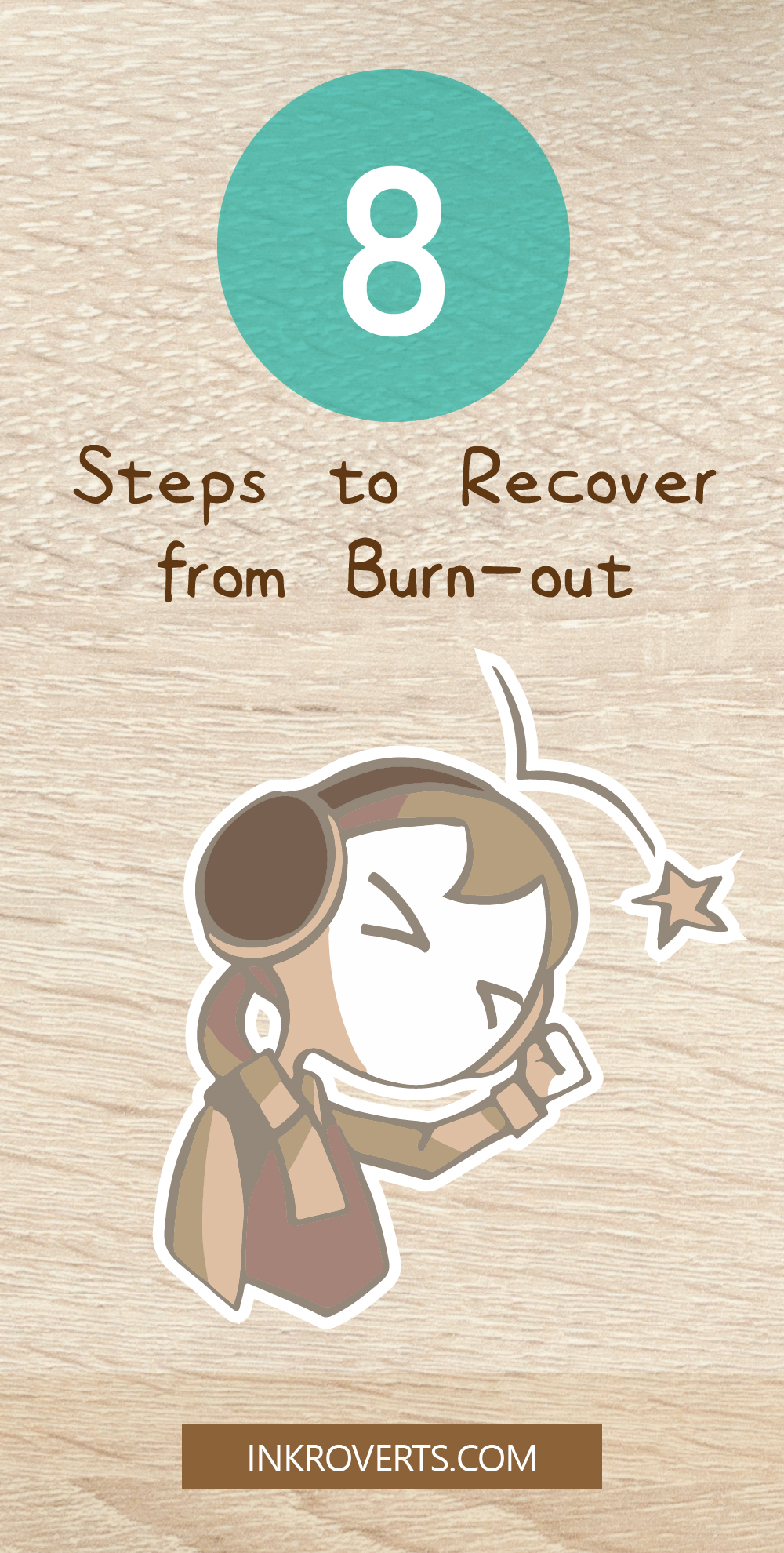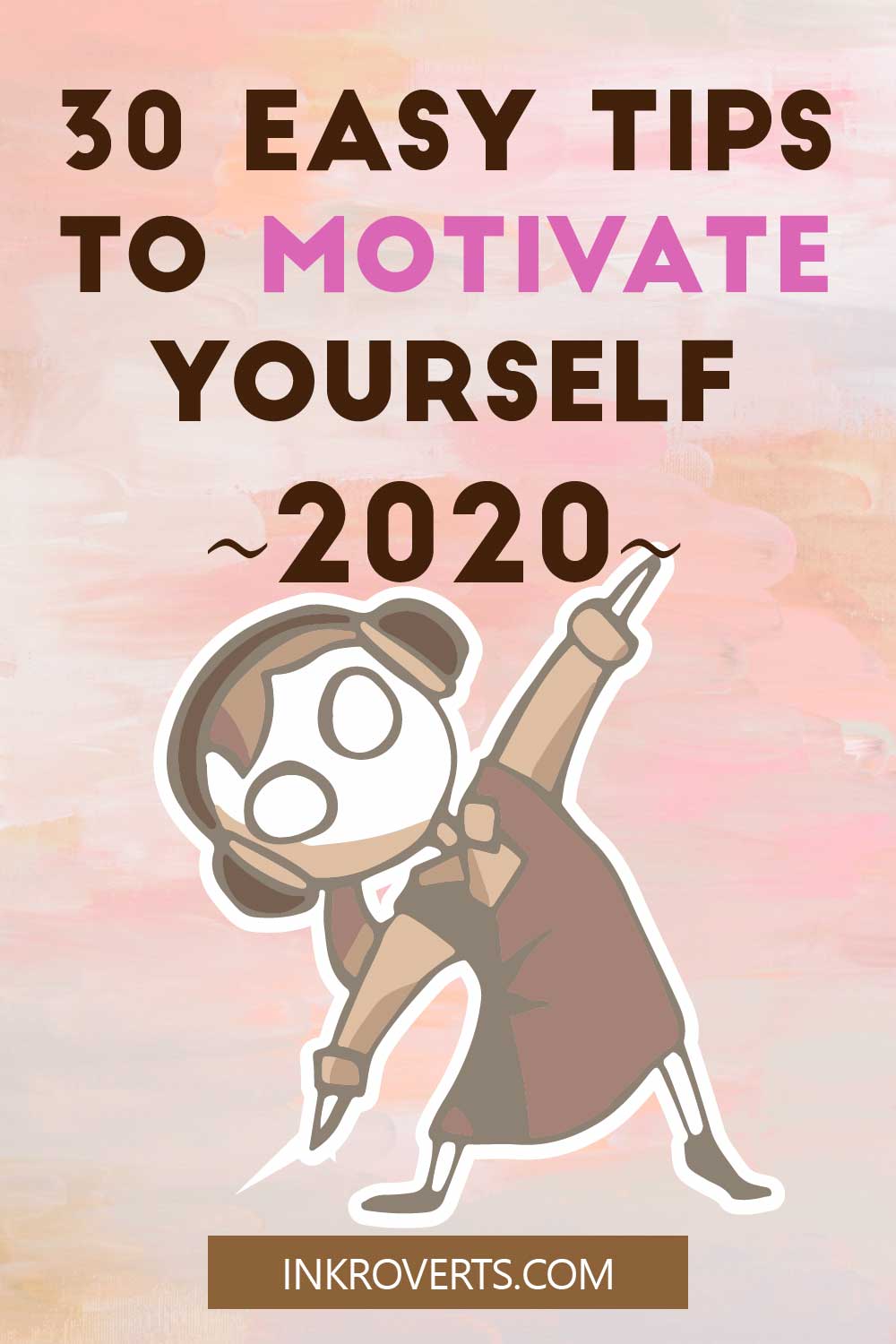
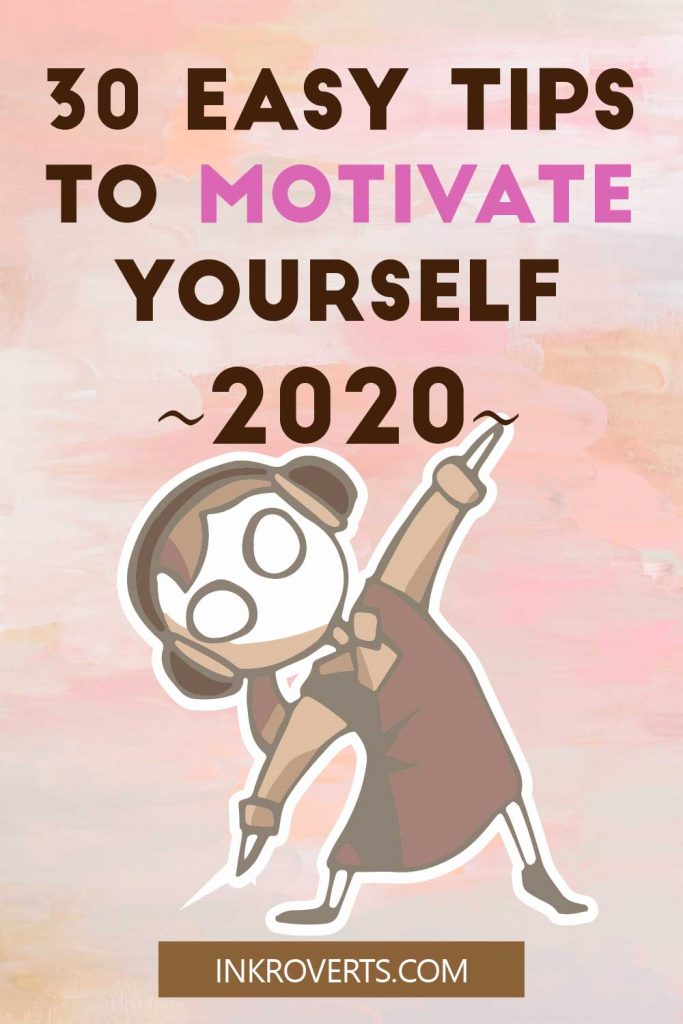
Let’s dive straight to the point: Motivation.
The key to motivation is to know exactly what you want, and eliminate distractions.
I’ve been juggling work, learning, writing, and digital art at the same time. And I know the feeling of just wanting to stay in bed and do nothing.
Luckily, I found the ways to tackle that problem.
So here are more than 30 ways to motivate yourself.
Table of Contents
Goal-Planning
1. Clean Your Desk

Take 5 seconds to scan your desk. Is it covered with scrap papers, game controllers, or anything unrelated to your work?
Put those things away until there is nothing but your pen and paper (or laptop).
Having only work-related things on the desks keep your mind away from other distractions.
Remember to clear your desk as long as necessary. Spending endless hours on cleaning may be a sign of procrastination.
2. Have a Realistic Goal
This is the most important question of all:
What is your goal?
A goal is the destination of your working journey. If you don’t have a destination, you will constantly question “why am I working so hard?”, and eventually quit.
A good goal requires 5 elements (SMART)

3. Brainstorm Ideas to Reach Your Goal
Alright, now that you have a goal, what next?
Time to find ways to achieve your goal.
For example, if my goal is to write a book, what exactly do I do?
- Write 1000 words a day?
- Find a beta reader?
- Look for writing tutorials online?
- Join a reading club?
- Or pay for an online course?
Think of as many ways as possible. It’s okay even if they sound outrageous at first.
You can decide which paths you want to follow later on.
4. Write a To-Do List
After knowing what to do, it’s time for a to-do list!
A to-do list is like breaking down the process even further. So that you know exactly what you need to do each day.
Let’s carry on with the “writing a book” example. You can write down in today’s list that you need to write 1000 words today.
It is absolutely essential that you write them down. Your mind is dealing with all sorts of things every day. And written lists are really helpful in knowing what is important.
I can tell you that my experience in writing to-do lists is absolutely irreplaceable. I’ve done this since I was a freshman, and it saves my sanity.
You can click to download the free resource on how to use a to-do list.
5. Keep Your To-Do List within 3 Things
As much as to-do lists help you remember things, you don’t want to write too many items each day.
I write about 2-3 items each day, plus 2 mini-items that can be done within 5 minutes but are still important.
Tim Ferris, the author of The 4-hour Workweek, recommends 1-3 items per day.
So it’s safe to say that keeping your daily tasks within 3 items is enough.
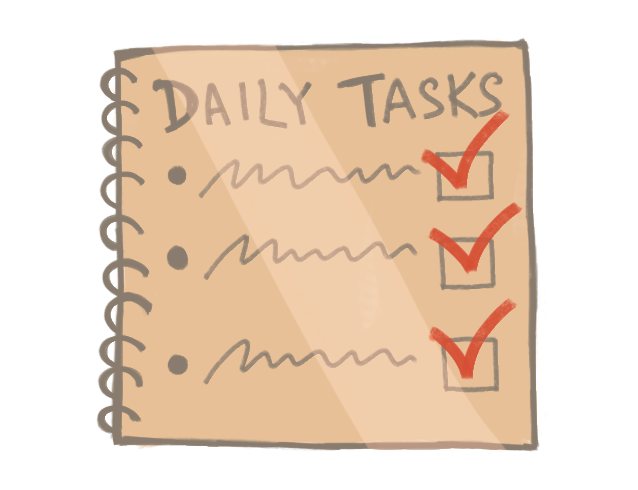
Time to Work
You know your goal. And you know what to do. Now it’s time to put things into motion.

6. The 5-Second Rule
Let’s put this on the table: procrastination sucks.
Luckily, there’s an easy trick to quickly push past procrastination.
Mel Robbins’ 5-Second Rule has worked for me. So I highly recommend you try it.
Basically, when you find yourself procrastinating, simply count from 5 to 1, then immediately stand up to get to work.
Remember though:
- You have to count backward. (5, 4, 3, 2, 1)
- You have to count aloud
- Jump up to work as soon as you reach 1.
You can take a look at her Ted Talk to know more:
7. Have a Quiet Workplace

If you don’t work in an office (e.g. at home), it’s easy to be distracted by non-work related things.
Your family may walk into the room when you’re working.
Your friends may suddenly call.
The TV may suddenly get turned on.
A quiet space makes a huge difference in your work progress.
Trust me, I count the time I used to work when the TV was blasting at home, and when I work in the school library.
I was shocked by how much time I can save, simply by changing the environment.
8. Start Small
It’s natural to feel pumped up right after setting your goal.
But be careful! Setting too high of a standard may demotivate you later on.
So start small, even though the process is slow at first.
Remember, Rome was not built in a day.
9. Have a Cup of Coffee/ Tea
A cup of hot coffee or tea is a nice touch for work.

It keeps you awake enough to work, while relaxing enough to enjoy the process.
About 1-2 cups of coffee are pretty enough for one day.
Too much caffeine may give you caffeine crash, or make it less effective in the long run.
10. Listen to (Lo-Fi) Music
Lo-fi music is low-key, relaxing, and basically stick in the background.

If you don’t like complete silence, some background music is completely alright.
In fact, music may even improve your work quality.
The music doesn’t have to be lo-fi, per se. You can choose any music without vocals and catchy melodies that can keep you focused.
11. Pomodoro Timer

A Pomodoro period is 25 minutes of focus work, and then 5 minutes of rest.
After 3 periods, you can have a longer recess (about 30 minutes).
The Pomodoro technique keeps you focused by breaking your work into small intervals.
The 5 min rest comes before you even feel slightly tired.
But this “small recharge and small work period” keeps you motivated throughout a long time.
You can download Pomodoro apps pretty easily. Or you can use a regular timer.
12. Break Intervals
Even if you choose not to use a Pomodoro timer, breaks are still necessary.
(Don’t be discouraged if the Pomodoro timer doesn’t work for you. Some people prefer a long focus period.)
At the very minimum, you should rest for 5 mins for every hour of work.
Do some stretching or walking. Have a cup of water. Look into space.
Do whatever you want to recharge yourself.
Dealing with Distraction
Because distraction is the worst enemy of motivation. Period.
13. Turn Your Phone to Airplane Mode

Or at least turn it to silent mode.
Statistically, you need about 40 mins to fully focus on your work.
Imagine you just get into the zone, and then BEEP!!!
You need another 40 mins to start all over.
I can’t tell you how many times this has happened to me.
Now, I turn my phone to silent when I work. My friends (and even family) usually only message me. So I will reply to them only after my work is finished.
14. Blacklist App/ Google Extension

Do you get tempted by apps and websites whenever you turn on the screen?
Resisting temptations will drain your willpower. Until eventually you tap on the apps.
That’s why I use blacklist apps like AntiSocial, as well as Google Extensions like Go Fucking Work to tell my distractions to get lost (figuratively).
You can choose what time you don’t want to use what apps and sites. And they will do the rest.
15. Clear Useless Apps
Aside from blacklisting, why not simply clear out apps you don’t use anyway?
Check the apps page of your phone. How many games do you play this week?
Usually, we use the main one or two, and let the others sit and gather dust (figuratively, again.)
Deleting them gives you a sense of a fresh start. Just like cleaning your room after a long period.
And compared to cleaning your room, clearing apps take less than 30 mins.
So why not give it a try?
16. Know When to Say No

We talked a lot about apps. But what about people?
Even after work, you get some invitation to hang out, party, or simply chat with friends.
If you notice your work piling up, it’s time to know your priorities.
Understand that it’s okay to say no from time to time.
Your future self will thank you for taking some load off of them.
17. Step Away from Screens
I know. I know. Screens are pretty much part of your life now.
If you work with a computer, then consider stepping away from screens off-work.
I can only describe to you the feeling of staring at a monitor for over 8 hours for a day.
My eyes burned. And even when I got a solid 8 hours of sleep, the bad feeling was still there the next day.
As much as YouTube, Instagram, and all make you smile, your body and mind need a little cool-down.
Mindset
18. It’s Okay to Fail, Just Pick Yourself Back Up
What if you can’t check all 3 tasks today?
What if you get distracted?

It’s okay. I’ve been there too. And so did many people.
The difference between you and a quitter is that you try again.
You believe that as long as you are doing something, you are closer to your goal.
19. Compare with Yourself Only, Not Others
Social media loves to show us how wonderful other people are living their lives.
Unconsciously, you begin to feel as if you don’t deserve anything.
But this is not the fact, of course.
You don’t see their struggles, their relationships. You don’t really know whether they’re happy or not!
In my point of view, as long as you are actively pursuing a goal, you are already way ahead of 80% of people.
Because it’s so easy to see how “bubbly” other people look and think “why do I even try?” and give up.
It’s hard to keep going and motivate yourself.
20. You Have Control
Reading Tim Ferris’ The 4-hour Workweek, I learned that what separates motivated people and those who’re not- is the locus of control.
The locus of control means how much control do you think you have over your life.
If you believe that you have control, you will be active to improve your life. Thus, you feel happy and motivated.
On the other hand, if someone believes their life is controlled by others, they won’t even bother to do anything.
21. One Step at a Time

Rome wasn’t built in a day.
I think I mentioned it up there. But it’s an extremely important mindset.
It’s easy to think that if you push yourself to the very edge, you can succeed faster.
While it’s healthy to challenge yourself, success is never guaranteed.
To say success comes within a few days is a complete BS. (But that’s exactly why many people quit, ironically)
I can tell you that it’s much more sustainably to take things steady.
As for how slow or fast, you can try testing yourself. Understand your own limits, then set a perfect schedule for yourself.
Aftermath
What? You can still motivate yourself after work?
Yes. Yes, you can.
22. Reward Yourself

Have a piece of chocolate, or watch your favorite TV show.
After checking your daily tasks, rewarding yourself is a huge factor in keeping yourself motivated.
That’s because you’re conditioning yourself to like work.
This method is proven by psychologists. They call this “positive reinforcement”.
23. Have Enough Sleep

When you hear someone say “sleep is for the weak”, they’re trying to jeopardize you.
An average young adult needs to sleep for 7-9 hours a night.
Sleep recharges, detoxifies, and heals your body. So that you have enough energy and brain-power for tomorrow.
Yes, your brain needs sleep too.
Having a sleepy mind is even worse than a sleepy body.
24. Exercise Regularly
Did you know exercise improves both your body and brain? It’s true!

We all know exercising helps control our body shape and weight.
It also betters your mental health and mood, because it serves as a form of outlet.
You don’t need to go all-in and workout for 1 hour every single day. A regular schedule that fits you is enough.
Better keep your muscles firm and wits sharp!
Honorable Mentions
25. Watch Inspirational Videos
Have you seen those inspirational/ motivation videos on YouTube?
Man, the music is theatrical! It really pumps you up for the day!
If you’re at low motivation, try watching those videos. Some of them tell stories of failure and success that you can relate to.
Remember not to binge videos, though! In my experience, watching 1 video is enough to motivate me.
26. Self Affirmations
Do you sometimes forget that you’re enough?
Let me remind you today: You are enough!

Psychologists found that your self-identity can be influenced by what you hear and see.
If people around you try to put you down constantly, your subconscious may believe them.
Luckily, you have the power of self-affirmation!
One of the common methods is to write sticky notes in front of your desk, telling you something like “You Look Great Today! :D”
27. The Commitment Contract
I was introduced to the “Commitment Contract” via some habit tracking apps.

In the contract, you write down exactly what you want to achieve. The reason, the reward, then finally you sign your name.
If you want, you even write the consequences of not achieving it.
This is a very stern promise to yourself: You Will Do It!
28. Gratitude Journal
The happier you are with your life, the more motivated you are to live it!
Try to get yourself a simple journal. Write down about 3-5 things today that you’re grateful for.
They can be small things: a tasty lunch, a hang-out with friends…
Whenever you feel low, just take out your gratitude journal. And you will see pages and pages of happy things in your life.
29. Eat Healthy

A balanced diet is extremely underrated. Not only does it give us a healthy physical body, but a healthy mind as well.
Try eating less processed foods, like chips, cakes, other snacks. And try eating more lean meat and vegetables.
You will feel the results yourself. The mind feels less stressed and more motivated.
Interesting fact, you will be more tolerant to pain as well.
30. Read Books

Books are the gold mine for inspiration.
Depending on what your goal is, you can be inspired and motivated by books!
For example, if you want to know more about blogging, why not read a book about blogging tips? If you want to write a story, there are many writer’s guide books out there!
And if you like personal growth in general, there are many books that you may like! Here’s some of my choices:
31. Wake up Early

In my experience, I wake up at 7 am to carry out my morning routine.
After that, it’s work time! I feel the most productive and efficient while everybody in the house is still asleep.
I highly recommend you to try that out! Because afternoons are when you feel the most sluggish (food coma, probably).
Get the hard things done in the morning, and enjoy the rest of your day stress-free!
Some people are night owls, which means that they’re more productive at late hours.
If it’s you, don’t worry! It’s just the same thing! Just switch your working time to night time, and still sleep for 7-9 hours.
Conclusion
Do you feel unmotivated? Is this why you’re reading this post?
The reasons why you don’t feel motivated can be:
- You lack a definite goal
- You are burnt-out
- You are experiencing stressful incidents in your life
- You are suffering from depression
- Other reasons
The first 2 reasons are something you can control. And you can try some of my tips above to motivate yourself.
However, if it’s the rest of the reasons (which you can’t control and is not your fault), I recommend this:
Take care of yourself first, emotionally and physically. Try to talk to your trusted ones, spend some alone time, or anything that makes you feel better.
It’s impossible for us to feel motivated 24/7. Just like it’s impossible for the sky to be blue all year round.
Don’t worry about taking things slow and steady.



